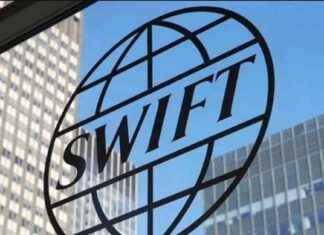VALENCIA, 19 Apr. (EUROPA PRESS) –
The SKYLIGHT 1 clinical trial has demonstrated the efficacy and safety of a specific drug, fezolinetant, against hot flashes suffered by menopausal women, as well as other women with a special risk profile, such as breast cancer survivors who receive hormone cancellation treatment.
This drug is a neurokinin 3 receptor blocker, a mediator that acts at the level of the hypothalamus to regulate the thermoregulatory center, which is affected by the loss of estrogen, with the consequent production of hot flashes.
The Incliva Health Research Institute, of the Hospital Clínico de València, participates in international research for the clinical development of new drugs to alleviate the effects of the heated conditions from which these results are derived, recently published in the Lancet, in an article entitled ‘ Fezolinetant for treatment of moderate-to-severe vasomotor symptoms associated with menopause (SKYLIGHT 1): a phase 3 randomized controlled study’.
The research is directed at Incliva by Dr. Antonio Cano, coordinator of the Women’s Health Research Group at this institute and professor of Obstetrics and Gynecology at the University of Valencia.
Menopause, as Incliva has pointed out in a statement, is associated with a symptom complex and with greater susceptibility to diseases, such as osteoporosis, which also suffer from groups of women prior to menopause. Among them, the survivors of breast cancer stand out who, after overcoming the disease, frequently receive hormone cancellation treatment for years.
Among these symptoms, hot flashes are one of the most prevalent and with the greatest negative impact on work activity and quality of life in general. Population studies have shown that up to 80% of women perceive them and that in around 25% they are frequent and severe.
The Incliva Women’s Health Research Group has been investigating osteoporosis in women cancer survivors for several years, with the aim of improving their quality of life and health in the face of this pathology. In this context, he is participating in international research on new neurokinin 3 receptor blocking products, which has now demonstrated the efficacy and safety of fezolinetant.
Neurokinin 3 is a small protein that acts as a stimulant for neurons, the cells of the central nervous system. At the brain level, in a region known as the hypothalamus, its production is regulated by estrogens, the female ovarian hormones. When the ovary stops working, there is an overproduction of neurokinin 3, which excites the neurons responsible for maintaining temperature control.
The result is a sudden feeling of heat, which can appear with more or less frequency or intensity and which, in some women, interferes with sleep, work productivity and other activities of daily living. In women where this problem is particularly acute, such as those subjected to intense ovarian deprivation due to diseases such as breast cancer, the series of hot flashes, frequent and intense in some cases, becomes a determinant of suffering added to that of the disease.
The most effective treatment known to date is estrogen supplementation, but some women do not accept it and, in cases such as breast cancer survivors, they cannot be given.
The Phase 3 randomized, double-blind, placebo-controlled SKYLIGHT 1 trial had a duration of 12 weeks, with an active treatment extension of 40 weeks. It was developed at 97 facilities in the United States, Canada, the Czech Republic, Hungary, Poland, Spain, and the United Kingdom.
Between July 11, 2019 and August 11, 2021, 2,205 women aged 40 to 65 years with a diverse profile representative of the potential target population for fezolinetant therapy had been initially recruited. Women with an average of seven or more moderate to severe hot flashes per day were randomly assigned to placebo, fezolinetant 30 mg, or fezolinetant 45 mg once daily.
The study results support the clinical use of fezolinetant as a non-hormonal treatment for vasomotor symptoms associated with menopause. The investigators believe that further characterization of fezolinetant’s benefit on quality of life, including mood symptoms and sexual well-being, requires further study.






